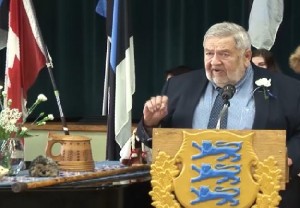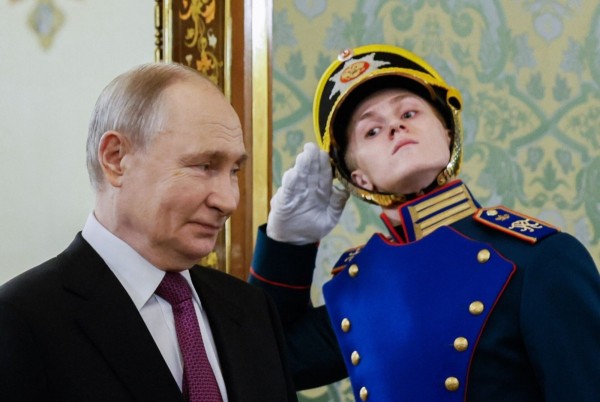Moscow and European ultra-right nationalists have some core interests in common: a weakned European Union plagued with inner conflicts; an autocratic approach to governing; stranglehold on any critical media; a xenophobic attitude towards foreigners; the use of populist rhetoric that has traction for those disenchanted with liberal-democracy.
Contact between Russian activists and representatives of the Western far right can be traced back to the early 1990s. But these initial relationships had low public visibility and mainly between people not enjoying any political clout. The links have grown, as Moscow has assumed a more intense and active anti-Western stance, and developed undisguised relationships at a much higher political level.
Initially Russia’s goal was to gain legitimacy for its actions both abroad and at home. Now it’s concentrating its efforts through its Western proxies, particularly among far right groupings, to weaken the liberal-democratic underpinnings of the West and to increase its influence in European politics.
Moscow’s inroads, both overt and covert, can be seen in numerous, ethnic-nationalist and populist movements, and registered political parties in Europe: Finland’s True Finns; Denmark’s Danish People’s Party; Bulgaria’s Ataca; the Greek Golden Dawn; Sweden’s Sweden Democrats; Spain’s Vox; Belgium’s Vlaams Belang; Hungary’s Fidesz and Jobbik; Italy’s Lega Nord; Norway’s Progress Party; the Netherlands’ Dutch Freedom Party; Norway’s Progress Party; Austria’s Party for Freedom; France’s National Rally; Germany’s Alternative fur Deutschland; France’s National Rally.
Advertisement / Reklaam
Advertisement / Reklaam
Although the international media has characterized Estonia’s Estonian Conservative Peoples’ Party (EKRE) as having a somewhat similar political profile as the Russia-supported European parties, especially with respect to the European Union and immigration, EKRE has not been identified as cooperating with Russia in on any issues undermining Estonian interests. In fact EKRE opposes, as do all the other parties represented in Estonia’s parliament, the lifting of international sanctions against Russia, imposed for the assault on Georgia, the annexation of Crimea and its military involvement in Ukraine. But EKRE has been noted to have trustworthy relationships with some high profile, Russia-friendly, far right political figures in Europe and leading EKRE members have participated in the European far right deliberations and forums.The links between Russia and the Western far right have been growing not only in Europe but have also burgeoned with US publicists, ideologues and politicians . Most notable is the cozy relationship that former Trump chief strategist Steve Bannon has with Russian actors. In 2018 he established a new coalition, The Movement, headquartered in Brussels, with the goal of boosting the cooperation among the various groups providing a conduit for the Kremlin’s influence operations in the West.
Even though he has worked in Wall Street investment banking, Bannon has referred to himself as a “Leninist” – probably a designation for his revolutionary brand of extreme right conservatism – he has praised Vladimir Putin and a breed of Russian mystical conservatism known as “Eurasianism”. The latter promotes a grand empire of Slavic and Turkic peoples which glorifies Russian leadership. A common aspiration shared by Bannon and Russian nationalists is a weakened European Union, a development that Trump has never opposed. In fact many critics perceive his confrontational behaviour with European leaders to be obvious evidence of this.
Even though the political honeymoon between Putin and Trump seems to be over, they still adhere to the same political agenda for the European Union as does the European far right. This surely emboldens Putin’s Kremlin in supporting anti-EU candidates for the European Union parliament throughout Europe.
Advertisement / Reklaam
Advertisement / Reklaam
Prior to the 2019 election of the EU parliament, the convergence of three interests was such an in-your-face presence, that French President Emmanuel Macron, directly accused the European Union’s enemies to be far-right nationalists, foreign (Russian) political actors and someone “close to the American power” structures. Steve Bannon was then in Paris, lending his support to the extreme right anti-EU election campaign.(To be continued)
Laas Leivat


























